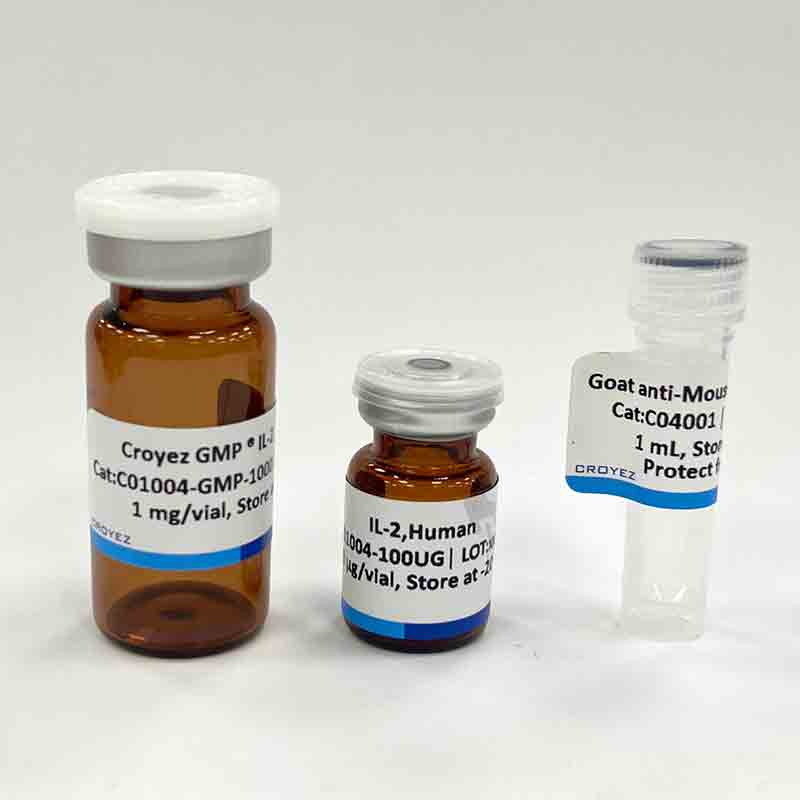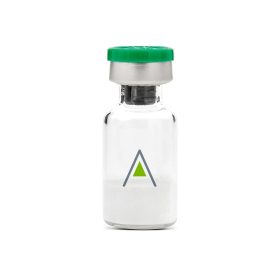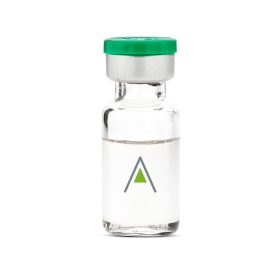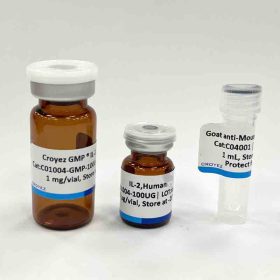Interleukin 16 (IL-16) is a cytokine that is released by a variety of cells (including lymphocytes and some epithelial cells) that has been characterized as a chemoattractant for certain immune cells expressing the cell surface molecule CD4. The protein encoded by this gene is a pleiotropic cytokine that functions as a chemoattractant, a modulator of T cell activation, and an inhibitor of HIV replication. The signaling process of this cytokine is mediated by CD4. The product of this gene undergoes proteolytic processing, which is found to yield two functional proteins.
Sequence:
MPDLNSSTDSAASASAASDVSVESTEATVCTVTLEKMSAGLGFSLEGGKGSLHGDKPLTINRIFKGAASEQSETVQPGDEILQLGGTAMQGLT
RFEAWNIIKALPDGPVTIVIRRKSLQSKETTAAGDS with polyhistidine tag at the C-terminus
Source:
Escherichia coli
Endotoxin Test:
<0.1 EU per 1 μg of the protein by the LAL method.
Purity:
>95% as determined by SDS-PAGE. Ni-NTA chromatography
Formulation:
The protein was lyophilized from a solution containing 1X PBS, pH 8.0.
Reconstitution:
It is recommended to reconstitute the lyophilized protein in sterile H2O to a concentration not less than 100 μg/mL and incubate the stock solution for at least 20 min to ensure sufficient re-dissolved.
Storage:
Lyophilized protein should be stored at -20°C. Upon reconstitution, protein aliquots should be stored at -20°C or -80°C.
Note:
Please use within one month after protein reconstitution.








